May 4, 2018
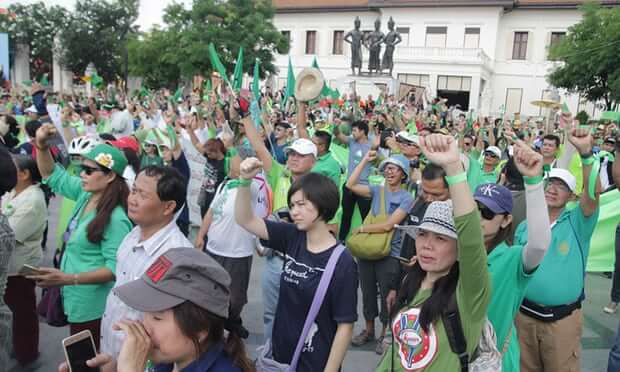
Photo: Demonstrators protest against the construction of a government housing project on the forested land around Doi Suthep mountain. Watcharapong Jingkaujai/AFP/Getty Images.

Following the primaries held on Sunday and Monday, ruling party ZANU-PF lost several major nominations. The elections faced irregularities and disorganization that resulted in delayed or annulled results in some parts of the country. President Mnangagwa has acknowledged complaints that police had been present in organizing the voting process, and he said that the practice is illegal. In a letter, the president’s special advisor Christopher Mutsvangwa, has claimed the elections had been rigged by senior party officials with the use of the Zimbabwe Republic Police.
In other news, Nelson Chamisa, leader of the opposition Movement for Democratic Change (MDC) has said that Chinese investors are stripping the country of its resources and that, should he win the July elections, any deals will be terminated. China is Zimbabwe’s largest source of investment and its fourth largest trading partner. Chamisa took over as a leader of MDC after deceased Morgan Tsvangirai in February this year.
Zimbabwe is now the second African country after Lesotho to have legalized the production of marijuana for medical and scientific use.

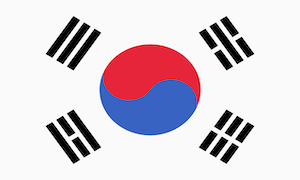
The nations have together decided to compete as one team at the World Team Table Tennis Championships. Both countries had qualified and planned to play independently in the quarterfinal round, where they were matched against each other. On Thursday, however, they announced that they would both skip the quarterfinals and advance directly to the semifinal round together as one unified team. Earlier this week, there were some other symbolic steps taken toward unity, including the coordination of the countries’ time zones and the dismantling of the propaganda loudspeakers that line the DMZ.
In more pragmatic news, the deliberations over denuclearization have led to varying ideas about conditions. South Korea has recently announced that it plans to continue the presence of the approximately 29,000 US troops stationed there. The announcement is significant especially because North Korea has explicitly stated the troop removal as a condition of its cooperation. US president Trump, despite the South Korean announcement, is reportedly preparing various plans for the troop withdrawal anyway. This comes in advance of his upcoming talks with the leaders over an official end to the Korean War.

Special Rapporteur on human rights in Cambodia, Rhona Smith, stated that the country has onelast chance to reverse its slide into dictatorship with the July elections, saying “no election can be genuine if the main opposition party is barred from taking part.” On Monday, Hun Sen told a group of students that there was absolutely no chance that the Cambodian National Rescue Party, the main opposition party, would return for the elections, as it had been “cremated and buried.” He insists that the other, smaller parties registering will provide acceptable competition to the election. Deputy leader of the CNRP Mu Sochua said “No CNRP, no free and fair election, means that the next government will be illegitimate,” and head of the CNRP Sam Rainsy continues to call for the Cambodian people to boycott the elections. In April the National Election Committee (NEC) warned that those who “interfered” in the polls by encouraging the boycott could face criminal charges. The Candlelight Party has added its support to the election boycott, saying in a statement that it will not take part in the July 29 election.
The registration period for political parties began on Monday and will end on May 14. The ruling Cambodian People’s Party, Hun Sen’s party, was among the first to register as well as the little-known pro-government Cambodian Youth Party and the Cambodian Nationality Party. A spokesperson for the NEC said that over 15 parties have collected forms to fill in and expects all to send in their applications.
Hundreds of protesters gathered in Phnom Penh to demand better working conditions on May 1. This May Day march was forbidden from congregating in front of the National Assembly “to keep security, safety, and public order” per National Assembly instructions, according to Deputy Phnom Penh Governor Mean Chanyada. Chairman of the Cambodian Labor Confederation Ath Thorn has declared this limit a “step too far,” particularly when the march had followed proper legal channels to gain permission for the gathering. Instead, the protesters were restricted to a smaller area near the river, accompanied by a large number of security forces. The Cambodian government has expressed concerns that the march could turn violent, using this to justify what Phil Robertson, deputy director of Human Rights Watch’s Asia Division, has called “arbitrary” denials of the people’s basic rights. He goes on to say that “What this shows is the government is afraid that any sort of public assembly will immediately become anti-government. Even worse, it shows that the government is afraid to hear the real opinions of the Cambodian workers as expressed on the street.” Some workers are worried about the looming threat of sanctions from the US and EU. The sanctions are intended to encourage human rights in the country, but workers would suffer if Cambodian exports lost preferential treatment. Ath Thorn has urged both sides to compromise, so as not to make the workers the real victims of the sanctions.

The presidential campaigns continue on, both sides making promises before the election in less than 3 weeks, despite a subdued response from the country while citizens suffer under the economic crisis. Henri Falcon, the opposition candidate, has promised to raise the monthly minimum wage to $75 and criticised Maduro’s recent pay raise that “doesn’t even pay for a kilo of meat.” He also vows to immediately allow humanitarian aid into the country, and announced that state workers will not be fired or face “persecution” if he wins, referring to the fact that the government regularly coerces state workers into supporting it at rallies and polls. The opposition remains fractured, some insisting they boycott the elections and limiting Falcon’s possible support base. Maduro, for his part, has accused the pro-opposition businesses of leading an “economic war” against his government and blaming them for the economic crisis, instead of his policies. He also promised a “prize” to voters who show a government-issued “Fatherland Card.” He did not specify what this prize may be, but critics say that cash or other bonuses are essentially bribes.
Venezuela’s chief prosecutor Tareck William Saab has ordered the arrest of 11 top executives of Banesco Universal, the nation’s largest private bank. This is part of a wide-ranging probe into the affairs of business leaders who, Saab says, “have done a serious damage to the national economy.” Saab did not provide any evidence or take any questions during his televised announcement of the arrests. The government will take over operations of the bank for 90 days to “clean it” of financial crimes.
The IMF has issued a declaration of censure against Venezuela after an Executive Board meeting found that the country had failed to follow through on its obligation to provide the Fund with macroeconomic data.

An envoy from the UN Security Council arrived in Myanmar on Monday. Tuesday, they traveled to the northern Rakhine state, the center of the mass displacement of Rohingya. Before the visit to Myanmar, the delegation visited Bangladesh, where they spoke to the Prime Minister and listened to the testimony of some Rohingya refugees. They heard accounts of rape, murder, and torture committed by the Myanmar military and iterated that the international community was looking to work with Myanmar to resolve the crisis.
The visit to Myanmar marks the first high-level diplomatic mission to the country since the crackdown last summer that caused over 650,000 Rohingya to flee their homes. De facto leader Aung San Suu Kyi has been making efforts to repair relations with both the Rohingya and the international community, much of which has declared the Burmese government’s actions tantamount to ethnic cleansing, verging on genocide. But human rights advocates warn that although the government says it wants to bring the refugees home, its actions have done little to support its words. Conditions for the return of the refugees remain unconducive, warns the UN, especially considering many of their homes were burned down and have yet to be rebuilt.
The two Reuters journalists who have been on trial for possession of state secrets since December received a significant ruling in their favor. A judge ruled a witness to be credible. Last week, the witness, a police officer, had said in his testimony that the two reporters were entrapped by the police, and the prosecution had asked to have him declared a hostile witness. Now, the judge has ruled he will accept evidence from the officer. Both sides were surprised by this ruling: the judiciary in Myanmar is not known for being independent, and the judge had already showed a preference for the prosecution with his decision to allow the case to go to trial. The witness has already suffered some consequences for his testimony, sentenced in secret to one year in prison for misconduct in a separate case against him. “I am revealing the truth because police of any rank must maintain their own integrity,” said the police officer after the hearing. The defense has not yet presented its case, but will hopefully be bolstered by this success. Hearings are expected to continue for another month.
A report released on Reliefweb conveys the calls of humanitarian NGOS for the protection of civilians in Kachin state and the immediate end of all hostilities in the area.

Schools in Arizona have reopened after lawmakers and teachers reached a deal on education funding this week. The teachers will receive a 20% salary increase by 2020 and the state will restore $400 million worth of funding that had been cut from schools and educational programs during the height of the recession. There is also the promise that the rest of those cuts will be reversed within the next five years. Although these wins are significant, Democratic State Representative Reginald Bolding reminded other lawmakers not to congratulate themselves for easing the very crisis they created. “You can’t set a house on fire, call 911 and claim to be a hero. And that’s what this body has done.”
A report this week details the excessive force and violence used both at the US border with Mexico and elsewhere in the country against immigrants. The findings presented violence and extreme acts by the US Customs and Border Protection Agency that have killed at least 97 people, both citizens and non-citizens, since 2003.
In Iowa, state lawmakers have recently approved a ban on abortion in almost all cases. It prohibits abortion of the fetus from the time a heartbeat is detected, normally 6-7 weeks into a pregnancy. By contrast, the vast majority of US states allow abortion until at least 22 weeks into a pregnancy.

On April 29th, thousands of protesters demanded justice for the killings of anti-government protesters. This time, the march ‘Pilgrimage for Peace’, had been called for by the catholic church.
International civil rights organizations, protesters and the Nicaraguan population have called for the Inter-American Commision on Human Rights (IACHR / CIDH in Spanish) and the UN to investigate the killings, torture, violence, and repression by the national police as well as the lack of information provided surrounding the health conditions of protesters and journalists in custody and in hospitals. The Nicaraguan State refused to invite the IACHR, and responded in a letter sent on May 1, 2018, asking the IACHR to await progress in internal proceedings. Students from the ‘19th of April Student Movement’ have demanded the ‘total collaboration’ of the government and urged president Ortega to accept the invitation before May 8th, saying they will convene a national strike if he refuses to do so. The national strike has been set for May 9th.
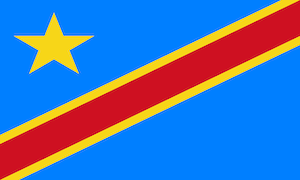
Around 10,000 women marched peacefully in Beni in eastern DRC on Friday, calling on UN peacekeepers and the army to stop deadly rebel attacks in the region. The women handed over a petition to the mayor and the UN mission, asking them to find and stop the Allied Democratic Forces rebels.
Lieutenant Colonel Maro Ntumwa, know as “The Moroccan”, has been convicted of several crimes committed in the DRC’s restive South Kivu province between 2005 and 2007. The NGO Trial International said he was sentenced to 20 years in prison “of war crimes including sexual slavery, pillaging and attacks against civilians, and crimes against humanity including rape.”
On Tuesday, the International Criminal Court’s chief prosecutor arrived in the capital Kinshasa to investigate deadly violence and crimes against humanity in Kasai. On the same day, a group of opposition activists were released by police. The group of 27 people from the nonviolent Struggle for Change (Lucha), had been detained for attempting to hold a rally and for disturbing public order in Goma, where all kinds of demonstrations are banned. Public rallies have been banned in DRC since September 2016, when dozens of demonstrators were killed. Last year at least 47 were killed. Earlier this year, the Congolese citizen movement Debout (Arise) had asked the ICC to investigate the crackdown on peaceful protests.
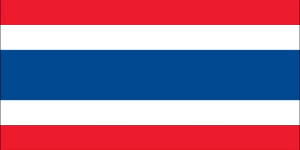
On Wednesday, hundreds of Thai citizens gathered near the UN headquarters in Bangkok, and two other locations around the city district to demand an end to “the intimidation of community activists by authorities” by the military government and express displeasure over the junta’s repeated delays of the election. The protest was one of the largest since the military coup in 2014, and disregarded the ban on public gatherings imposed by the government. Three hundred police officers were posted to oversee the crowds. Some of the protesters laid out mats, and plan to stay camped outside the government buildings for two weeks. A group called People’s Movement for Just Society, or P-Move, organized the protest despite a history of members being intimidated by Thai military and police officers, some forcibly evicted from their homes.
On Sunday April 30 1,250 people gathered in protest of a proposed luxury housing development in the forested land at the foothills of a sacred mountain. Officials and judges were the intended residents of the development. Again, the protest flouted the ban on public gatherings, but Police Colonel Paisan said they were permitted to assemble as they had correctly requested permission from the bureaucracy. Colonel Paisan, deputy commander of Chiang Mai Police, reported that the protesters were focused more on the environmental impact of the construction than on politics, and even cleaned up the streets after the protest ended. Others have said the debate is just one facet of a longer struggle against the government giving preferential treatment to its officials, often trampling the public in the process. The protesters wore green poncho-like clothing items, or waved green flags or ribbons. They gave the government seven days to change the development plans or face more mass gatherings.
A magazine editor, Somyot Prueksakasemsuk, had been released from prison. He was arrested in 2011 for insulting the monarchy, and after two years held in prison without bail for the trial, was given a sentence of 11 years. He had been organizing a campaign to reform the lese majeste laws, which limit critical speech about the royal family members. In 2017, the Supreme Court reduced his sentence. After his release, this Monday, Somyot promised to keep calling for democracy. He particularly highlights the need for elections, as the Thai military government continues to push back the date, last delaying the election until February of 2019.

A poll shows Ricardo Anaya, candidate for the left-right coalition “For Mexico in Front”, still in second place but gaining on leftist candidate Andres Manuel Lopez Obrador even as Lopez Obrador gains another percentage point. Anaya is finally getting out from under the corruption allegations that have been plaguing him for months and rising in the polls. Meade, ruling party candidate, still holds third place but has dropped two points, and the two independent candidates dropped as well. If the trend continues, experts predict a much closer race, although Anaya may still not have enough time to catch up before the July 1 elections.
Lopez Obrador claimed on Tuesday that business leaders have tried to convince the ruling PRI to switch allegiances from its own flagging candidate, Meade, to the pro-business Anaya in a late-campaign alliance. Government spokesperson Eduardo Sanchez has denied this claim, calling it “fake news.” Anaya himself has called on all those put off by Lopez Obrador’s more leftist views to rally behind him.
Concerns over fake news and foreign influence over the Mexican elections were highlighted this week when a message that many Mexican voters would have to re-register within the next few days to be able to participate in the July election circulated social media platforms— but it was false. This was not the first example of fake news spreading across Mexican media: a claim that Pope Francis himself had criticised Lopez Obrador’s political views was also circulated, but again proved to be fabricated. Mexican authorities have reached agreements with social media platforms like Facebook, Twitter, and Google to fight fake news as the election draws nearer, and many fact-checking organizations, some newly established, are on the lookout.
A raid on the headquarters of a police force in central Mexico revealed that 113 of the 185 officers were not registered police officers at all. The fake officers will be facing charges equivalent to impersonation of a police officer, according to the Public Safety Department in Puebla state. The state’s interior secretary cited several cases where bodies had been found in the streets of the town, saying this was proof that the town’s government had “lost control.” Puebla has the largest amount of illegal oil pipeline taps, usually by criminal gangs looking to steal the petrol.
Around half of the individuals who made up the “migrant caravan” that arrived at the US-Mexico border last week have been allowed to apply for asylum in the US. Lawyers and state officials have swarmed the area, some warning the immigrants to not attempt to cross the border illegally, others arguing that applying for asylum was within the immigrants’ human rights. The “caravan” has drawn international attention since Trump took to Twitter to criticize the group.

Rebels have agreed to surrender their last enclave outside Homs, the third-largest city in the country. This decision came after “intense government bombardment and a debilitating siege,” rendering them unable to go on. The Russian-brokered deal includes the ability for government institutions to re-establish themselves in this enclave at the evacuation of the rebels, and also their subsequent exile to northern Syria. In further developments, rebel groups have been surrendering their heavy weapons, including machine guns and artillery, to the government.
Despite this decline in besieged areas, a UN report this week detailed the persistently critical conditions for Syrian civilians. Beyond the civilians caught directly in the besieged zones, those being evacuated find also completely insufficient and potentially very dangerous conditions. Evacuees have typically been getting shuttled to Idlib, which a UN humanitarian advisor has called “full to the brim” with displaced civilians. The camps are unsuited for decent living, open and congested or with people crammed into collective centers.
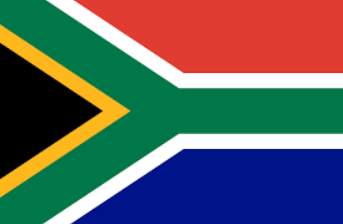
This week, thousands of South African miners who contracted fatal lung disease reached a $400m settlement with six gold production companies. It’s the country’s largest-ever class action suit and a historic settlement for exploited miners, although it remains to be approved by a high court before being implemented. Only hours after the announcement, 13 miners were reportedly trapped in the Masakhane mine, following an earth tremor. 10 have now been rescued, but 4 died from their injuries.
On May 3rd President Cyril Ramaphosa said at the Japan-Africa trade forum in Johannesburg that a mining charter including new rules governing black ownership of South Africa’s mining industry will soon be finalized.
Armenia – Protests have reignited in the capital after the national parliament rejected opposition movement leader Nikol Pashinyan’s bid for prime minister. – OC Media
Israel – The national parliament passed a new law giving the prime minister and the defense minister authority to decide when and whether the country will go to war. The move has drawn sharp criticism, both in Israel and abroad, for the potential drastic and hasty decisions that could result. – NYTimes
Iran – Activists have covered thousands of banknotes with drawings and handwritten messages that express and encourage dissent in the country. This inventive protest gained traction recently over social media, with users spreading images of the bills to promote the movement further. – Business Insider The execution of Iranian prisoner Ramin Hossein-Panahi, sentenced to death in January for “taking up arms against the state”, has been delayed. It was due to take place on Thursday but is believed to have been helped by the widespread protests on social media, with his name shared in tweets almost 230,000 times in 48 hours. – BBC
Laos – The minimum wage has been increased from 900,000 kip (some 108 U.S. dollars) to 1.1 million kip (some 133 U.S. dollars) a month, as of May 1. – Xinhuanet
Mali – The U.N. peacekeeping mission in Mali MINUSMA says extremists linked to the Islamic State group in Mali killed at least 47 Tuareg civilians in the Menaka region on April 26 and 27. – Washington Post